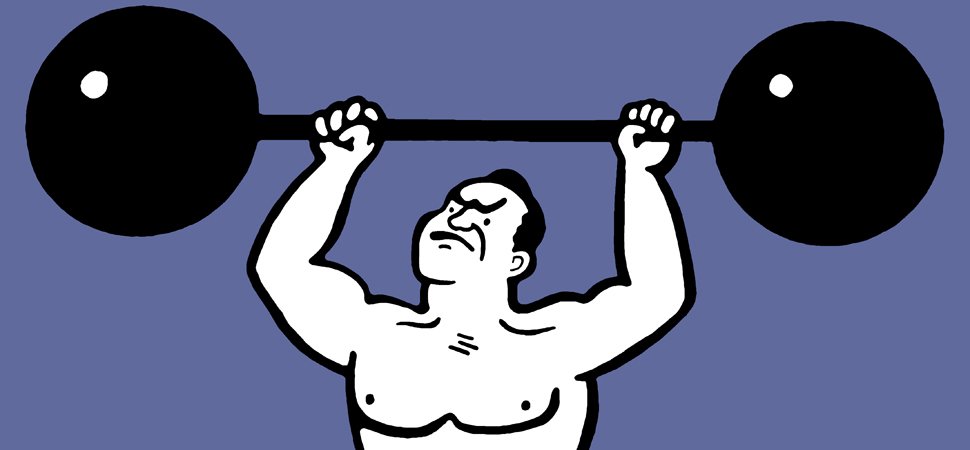|
Summer holidays are just around the corner and as you move through the day-to-day operations of your current role, you may ask yourself as you look forward to the fall and the year ahead, is it time to look for my next step? While it is tempting to just shoot out a copy of your CV when you run into an opportunity, sending out a CV without the preparation may not get the results you desire, and in some cases, may jeopardize future opportunities because it does not clearly represent who you are and what you are seeking. While there are no absolute rules for when you should start seeking your next role, there are some fundamentals that any executive needs to consider when they do decide to explore new opportunities. Both private and corporate executive clients I have worked with over the years have benefited from a quick check up before launching into their search process, and I hope that some of these tips can help you as you consider your next steps. (Hint: It’s not only about getting your papers ready!)
Gaining Clarity in Who You Are Today and What You Seek It is worthwhile before you launch your next steps forward to take an inventory of where you are at as an executive. Who you are is a culmination of your entire career – think of it as a story… from where you started, the turns in the road that you have taken (and why), and how your destination has come into focus. Understanding who you are today and where you are going is the first step in the process. Without this, it is difficult for recruiters or potential hiring organizations to envision you in a potential role. Working through this process, my clients come to have a better understanding of their actual current inventory of skills and competencies, what skills and competencies are required for potential future roles, and what may be some potential paths to gain these critical skills and competencies. I help my clients identify things that they have overlooked as they work me through their story to highlight items that they have not considered to be valuable for their potential future employers. It is also important to be brutally honest with yourself on what you state are your actual skills and competencies – overstating your capabilities could potentially land you a job, but the consequences when you are in the job could pose a major risk and could be devastating to your overall career. I also work my clients through a visualization phase of diverse paths that can help them see that their career need not be a single tunnel – sometimes we as good corporate soldiers continue to take the next “logical” step in career progression, forgetting to lift our heads up to see the broad spectrum of options that can give us far more fulfillment. It is quite interesting as I look back on some of my clients over the past years that have had the courage to take a radically different path than the “logical” one and have grown significantly in their new pursuits with incredible motivation and purpose. Once these alternative paths are laid out, my clients research them to understand better what it would be like to be in one of these roles and some potential career steps to gain the inventory they need to prepare themselves for that journey. We do this in the context of the client’s key values, drivers and boundaries, which may shift over the course of your career and lifetime. By force ranking what are the most important values and drivers to a client, one avoids taking steps that are not congruent to the client, and also prevents the issue of backing out of potential offers after realizing it is not really what the client wants. Ensuring Your CV is in Alignment and Projects What You Want The next step that I work my clients through is to ensure that their CV states clearly and succinctly who they are and why a potential hiring organization should place a bet on hiring them. Working though a CV is a lot more than ensuring there is enough white space and that you don’t mistake bullets for sentences and paragraphs. It is more than about inserting active verbs and key words. It is all about alignment. I use a pyramid method as I screen my client CVs, ensuring that each subsequent section offers more details of their capabilities and that their qualifications are demonstrated concretely through one or more of their previous professional experiences. We look to introduce the “so what” factor in every bullet, ensuring that the CV is not a a list of job descriptions – these are not only numeric quantifications, but can also include why your accomplishment made a difference or why it is relevant and translatable to potential hiring organization. Your CV needs to be customized to emphasize the right elements for specific jobs and organizations (one size fits all is not a principle that works here) and certain industry sectors have common elements that may allow you to transition from one to another while adding tremendous value. We work on ensuring that your CV is understandable for recruiters and external hiring organizations – your internal CV and job titles need to be adapted to meet the target audience. Last but certainly not least, we step back and take a look at the overall work product to assess how it reads, potential gaps or anomalies, and whether or not it accomplishes the desired outcome. Understanding How You Project Yourself in Interviews and Optimize Interactions The final phase that I work through with my clients is the self-preparation phase. Whether for phone interviews, email exchanges, or in person interviews – I work with my clients to gain awareness on how they project themselves, some habits and mannerisms that they may want to adapt, and strategies to overcome potential derailers while they are interacting with recruiters or hiring organizations. While working together in the previous phases, a coach is constantly observing and noting things like how you express yourself, words you choose, how you react under stress, and potential derailer habits that you may not notice yourself. We work to understand what is driving these behaviors and then work to replace them with behaviors that serve you better. We work through a structured thinking approach for a better and more thorough preparation, to organize your information, and to enable quick retrieval of the best examples to demonstrate a point asked by the interviewer. Last but not least, it entails helping clients deal with answering challenging questions with candor and confidence. Considering your next steps in your career is about a lot more than a fishing expedition to see what you might catch by throwing out your CV. Investing in yourself to do it right the first time is well worth the returns of finding the right fit for your next role and potential future organization. In just three simple sessions, which can be done off hours and in privacy away form your day to day operations, you can better prepare yourself to explore the possibilities. If you are interested, click here to arrange a free private consultation at your convenience. For private clients, I offer flexible and discounted solution to fit your needs.  It's refreshing to see more people speaking publicly about their "Dirty Little Secret" - in many companies and country cultures, there are still folks that think seeking support to grow is sign of weakness when instead, it is a strength. I liked this article from Forbes by guest writer Harley Finklestein, COO at Shopify, as he candidly shares his thoughts on how he went from feeling he could do everything by himself to understanding why booking his first appointment with his coach was the smartest business decision he ever made. He also shares how working with his coach helps him in both his business and personal lives. Lastly, if you are curious about the experiences of other executives, you may find something interesting in the Testimonials section of executivehat.com . Have a great weekend! My Dirty Little Secret: I Have an Executive Coach by Harley Finklestein, COO at Shopify to read about other experiences, read more here: executivehat.com/testimonials.html  A great article from Inc Magazine highlighting behaviors we see in leaders people WANT to follow. Beyond the title and past positions held, people that consistently and genuinely demonstrate these behaviors go on to accomplish great things. Take a read... 10 Signs You Really Are a Leader (and Might Not Know It) Many times people who influence us the most aren't even aware they are leading us. by Lolly Daskal http://www.inc.com/lolly-daskal/10-signs-you-really-are-a-leader-and-might-not-know-it.html  From Entrepreneur.com Are you seeking to be a leader that people admire, one whose team is motivated and engaged? A leader who faces each day with a smile, no matter what comes, and leaves feeling satisfaction despite the challenges of the day? A nice reminder from Jacqueline Whitmore on the benefits of kindness in our lives and that of those around us. Read the full article here 8 Effortless Ways to Make Kindness Part of Every Day Kindness is Contagious http://www.entrepreneur.com/article/272431  INC Magazine/Getty Images INC Magazine/Getty Images An interesting read published on INC Magazine on scientific proof of how negativity affects our brains. We often practice "venting" in the office, then try to mobilize ourselves back into action and solution-mode. Of course others can spend a greater amount of time expressing dissatisfaction or complaining. What I learned from this article is that perhaps we need to pay attention to how much time we actually spend in this negative space as there may be consequences beyond affecting our own mood or that of our co-workers Something I used to do while in the corporate world was to take a break, take a lap walking around the parking lot of the offices. Maybe you have some different strategies. Read the full article here: Have a great week! Complaining Is Terrible for You, According to Science Steeping yourself in negativity has seriously terrible consequences for your mental and physical health. by Jessica Stillman http://www.inc.com/jessica-stillman/complaining-rewires-your-brain-for-negativity-science-says.html Before fixing what you are looking at, check what you are looking through… - Mark Nepo, The Book of Awakening 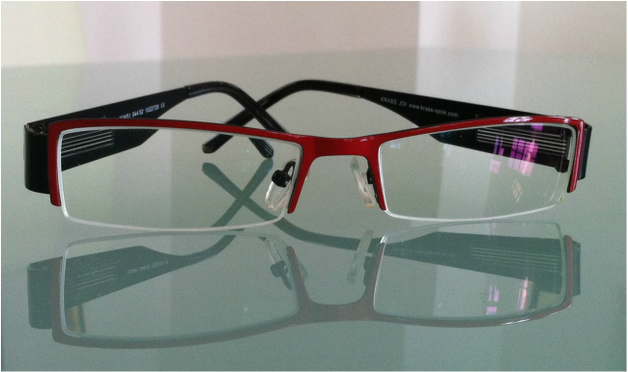 In his book, The Book of Awakening, Mark Nepo speaks about how we see the world using the example of his grandmother looking out through her only window and complaining about how gray the day was, only to realize that the window was dirty. When he discovered this, his grandmother with humor stated, “Got a dirty eye, see a dirty world…. ”Whether it is a dirty window, a pair of glasses with smudges or reflections of something else, or a mood that affects everything that happens to us, he offers a reminder that we see the world as we choose to see it. While we do not control all the events in our lives, we do have the capability to see things as they are, naked of all the baggage we pile on. It’s not only a question of perspective, but perhaps also one of simplicity devoid of assumptions and or expectations. We don’t control the all the events in our lives, but we do choose what we see and how we interpret those events. Finally, we choose what to do in the face of these events. While coaching clients who want to improve how they manage conflict in their professional or personal lives, I often ask my client to walk through an event, step by step, as it is a movie played on a screen in front of them. First observing what is seen, heard, the actual words and motions. As we dive deeper, the client is often surprised when I play back the words used by the client to describe the situation. Or, the client is surprised when I ask whether some portion of the event that was critical in their interpretation came from the scene itself or from something he or she interpreted from a past experience or an expectation. There is something to be said about learning from our past experiences or using our intuition in dealing with the events in front of us. The tricky part is to be aware of what is an assumption or comes from within ourselves and what is actually being done by another person in front of us. When we become aware of our own internal dialogue or assumptions, it is only then that we can put forth those assumptions to check with the other person if that is what they truly intended. Through more simple questions and communication to clarify, some of the conflicts and misunderstandings could perhaps be avoided. The other factor that can dirty our windows, so to speak, can be our beliefs and expectations. Whether in the office or at home, if we expect the worst from someone without giving them the benefit of the doubt, we will for sure end up with an unpleasant experience that reinforces our beliefs about that person. It can make a simple misunderstanding evolve into an overall sentiment that all is terrible with that person, therefore labeling the identity of the person as “bad.” Likewise, we may also miss critical clues if we expect that anything that a given person does is perfect. Later, we can experience an unpleasant surprise because we “did not see it coming.” Another example of this is a senior leader that is preparing to “fight” for his department at a management meeting. Whether for new product development budget or for issues that his department has encountered, by seeing the meeting as a battlefield, the executive found himself in a defensive position, using terms like “my department” and digging his heels, wondering why no one was listening to his ideas and concerns. In doing so, he probably positioned himself as sitting across the table against his peers, rather than sitting together trying to find the best solutions for the business as a whole. After our discussion, he liked the analogy of being in a boat, each leader having an oar, and each oarsman playing a critical role to move the boat forward. It gave him food for thought as he prepared for his next management meeting. Mark Nepo speaks about the window washing in our minds and in our hearts. He asks us to contemplate what are the ideas and conclusions we have in our minds and in our hearts, and how we can wash these windows through which we see the world. It was a great reminder for me, an invitation for me to see things and other people for what and who they are, not as I believe them to be. I hope that it can also offer you an opportunity for reflection. Thanks !  from HBR.org Calming Your Brain During Conflict Four steps to get out of “fight or flight.” by Diane Musho Hamilton "Conflict wreaks havoc on our brains. We are groomed by evolution to protect ourselves whenever we sense a threat. In our modern context, we don’t fight like a badger with a coyote, or run away like a rabbit from a fox. But our basic impulse to protect ourselves is automatic and unconscious....Mindfulness is the perfect awareness technique to employ when a conflict arises — whether it’s at work or home. It allows us to override the conditioned nervous system with conscious awareness. Instead of attacking or recoiling, and later justifying our reactions, we can learn to stay present, participate in regulating our own nervous system, and eventually, develop new, more free and helpful ways of interacting." read the full article here https://hbr.org/2015/12/calming-your-brain-during-conflict 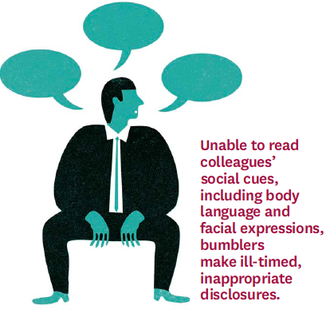 from the Enterprisers Project, download a free pdf of an HBR article I often speak to clients about being authentic while enabling others to gain trust and to engage by getting to know you better as a person, not just as a manager. This article helps illustrate where leaders sometimes fail in their attempt to gain more intimacy with their teams, then puts forth five simple steps to help leaders achieve more effective and authentic disclosure. Starting with self-awareness, relevance, keeping revelations genuine, knowing the context in which you are operating, and finally, what may be too personal. read the full article here Be Yourself, But Carefully Learn how to be authentic without oversharing, by Lisa Rosh and Lynn Offerman https://enterprisersproject.com/resources/be-yourself-carefully  from Entrepreneur.com Stress Literally Shrinks Your Brain. Here Are 7 Ways To Reverse This Effect. by Travis Bradberry "We all know that living under stressful conditions has serious emotional, even physical, consequences. So why do we have so much trouble taking action to reduce our stress levels and improve our lives? Researchers at Yale University finally have the answer. They found that stress reduces the volume of grey matter in the areas of the brain responsible for self-control. So experiencing stress actually makes it more difficult to deal with future stress because it diminishes your ability to take control of the situation, manage your stress and keep things from getting out of control..." read the full article here http://www.entrepreneur.com/article/270629  A very common challenge facing my clients is the overwhelming amount of work they face as they step into the senior executive role. Have you heard of the term "drinking from a fire hose"? Not a very flattering image, yet it can be the perception left with your colleagues and direct reports as you step into your new role. Responding to emails after midnight just doesn't send the message that you are on top of things. In comparison, as I think to leaders that I have aspired to over time, I see a calm and purposeful demeanor, yet they seem to accomplish more and be more knowledgeable than those around them. How do they do it? I like this article by Jacquelyn Smith at Inc. Magazine because it speaks about focus, priorities, creating capacity, and knowing one's own value. A simple yet refreshing read... take a look. from INC. Magazine 3 Qualities that Make High Performers Different from Workaholics While both look like they work hard, high performers have a sustainable work ethic, while workaholics are on the fast track to burnout by Jacquelyn Smith
read the full article here http://www.inc.com/business-insider/what-makes-you-a-high-performer-instead-of-a-workaholic.html from INC. Magazine...
9 Mantras That Will Keep You Mentally Strong in Tough Times The way you think about adversity affects your ability to persevere. by Amy Morin "While it's often easy to be mentally strong when life is going well, your true strength becomes apparent through adversity.... The way you think about life's inevitable obstacles affects your ability to cope with tough times. Developing a productive inner dialogue is one of the most productive ways mentally strong people keep building their mental muscle." read the article here http://www.inc.com/amy-morin/9-mantras-that-will-keep-you-mentally-strong-in-tough-times.html  From HBR.org "We all have default behaviors. And when we are in the moment, trying our best to perform well, how we handle these automatic reflexes can be the difference between success and failure. It’s these moments that add up to the larger tasks and projects that are our work. Moments in which behavior – what we think, feel, say, and do - is the primary driver of performance." read more here How to Override Your Default Reactions in Tough Moments by Lee Newman https://hbr.org/2014/04/how-to-override-your-default-reactions-in-tough-moments/ as a note: you can read up to 4 free articles each month on HBR.org, If you register on the site (free) you can read up to 8 free articles per month.
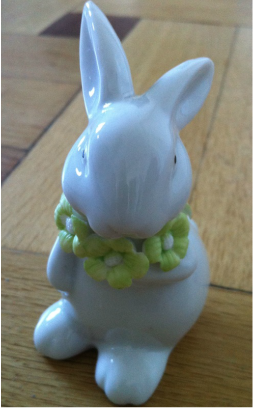 The New Year is beginning. For some of us, the New Year started on January 1st, for others it starts today with the Chinese (Lunar) New Year (February 3, 2011). It is a time of reflection for many of us, about the year that has closed and about the changes that we want to make in our lives in the coming year. It is a time of opportunity as well, because prospects of facing a new year can provide us with the motivation to mobilize. It gives us the feeling that we can make a fresh start or adjustments to ourselves if we have the desire and will to do so. How many of you have made up your New Year’s resolutions? Now that we are starting February, how many of those are fading away already? Whether you have already done so or not, I would like to I invite you to take a deeper look as you contemplate the resolutions and the changes that you want to make in the coming year. Why New Year’s Resolutions Sometimes Fade Away One most common reasons why New Year’s resolutions get set aside is that the goal you have set is something you feel you “should” do, but in the scheme of things, perhaps it is not truly a priority. While it might have made perfect sense at the time of making the commitment, actions speak louder than words: our actions during the course of the year of will determine whether the goal was really a priority or not.... Holding on to anger is like grasping a hot coal with the intent of throwing it at someone else… you are the one who gets burned… Buddha 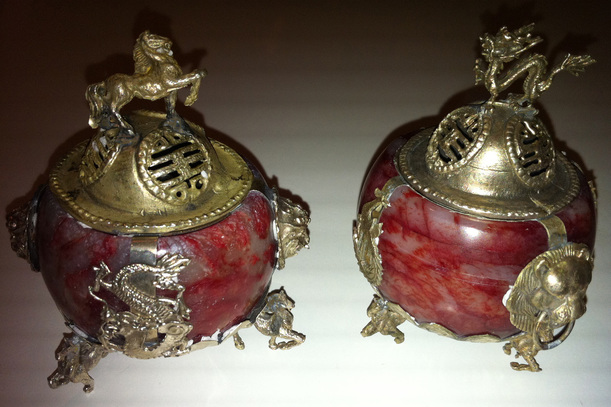 When was the last time that you felt yourself getting angry with someone? A colleague? Your partner? Your son or daughter? Yourself? How did it feel at the time? As you think about the events that played out, would you like to find different ways to manage through the situation for a more satisfying and productive outcome? In this article, I would like to explore what are your choices in reacting to anger once it is triggered. By understanding what is going on inside us and around us, we have more choices on how we can manage or express our anger. Note: This article is not intended to provide medical advice, diagnosis or treatment (see note below) What is Anger? Anger is a normal and usually healthy, human emotion. It comes from a perceived threat to ourselves, someone we care about, our self-image, or our identity. It is useful as it protects us and it...  Watch your thoughts, they become words. Watch your words, they become actions. Watch your actions, they become habits. Watch your habits, they become your character. Watch your character, it becomes your destiny. - Buddhist philosophy This very simple Buddhist philosophy is a great reminder that there is only one person who is the author your life. It’s you. While there are many events and other players in the story, our thoughts and beliefs drive our behaviors, and our choices drive our actions and ultimately our destiny. With any change one tries to make in their life, it is important to gain awareness of what is going on inside of you that drives these behaviors. Usually there is a reason for anything we do. Rewriting the foundation beneath the behaviors helps drive lasting and sustainable improvement. If you are interested in learning more, contact me for a free trial session to see how coaching might help you gain the insight to drive positive change in your life and career. Competitiveness seems can be perceived as normal for anyone on the job. It can be perceived as a sign that someone is doing all that they can to do to do the best job. Other times it can create barriers to trust and leave your colleagues wondering if you are on the same team (or out for your own agenda). I think that this behavior can also be perceived differently when exhibited by men or by women. While the behavior can be perceived as natural when exhibited by men, women who are competitive usually get some additional (and unflattering) labels attached to them at the first sign of competitiveness. When competitiveness becomes associated with you as a negative identity label, it can be coming from a behavior that you exhibit or it can come from others who feel that they need to compete against you for some reason. Don’t be surprised if you find your colleagues competing against you. That’s life. I choose to think of it as a compliment. After all, why else would that person be competing with you? You must be good at something that you do for them to notice you and choose to be competitive with you.
Is there a problem here? Maybe not, but I would be doing a disservice not to mention something for you to think about. It might be worth taking a look whether or not this is a problem if you ... |
|
Services |
Company |

